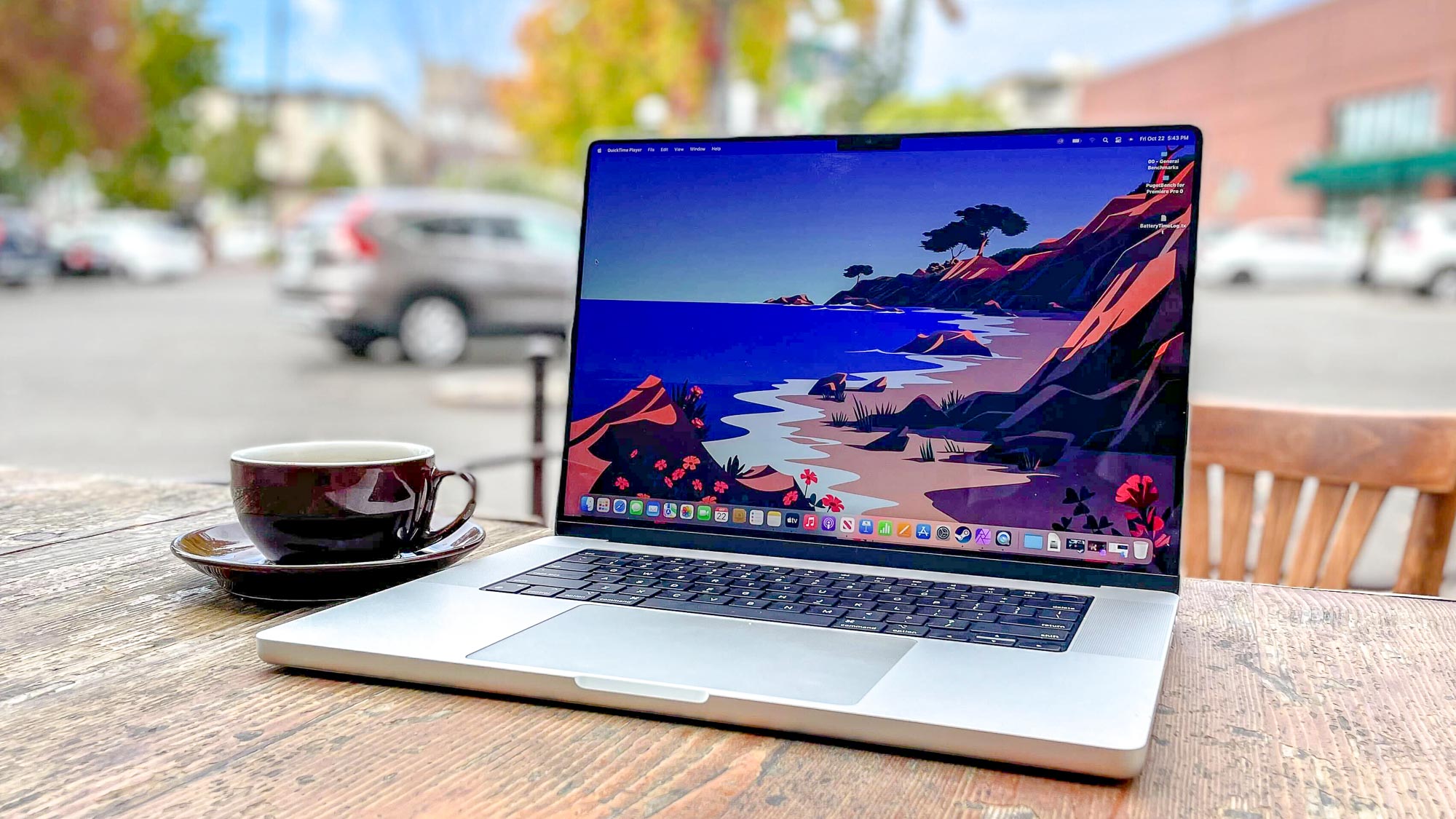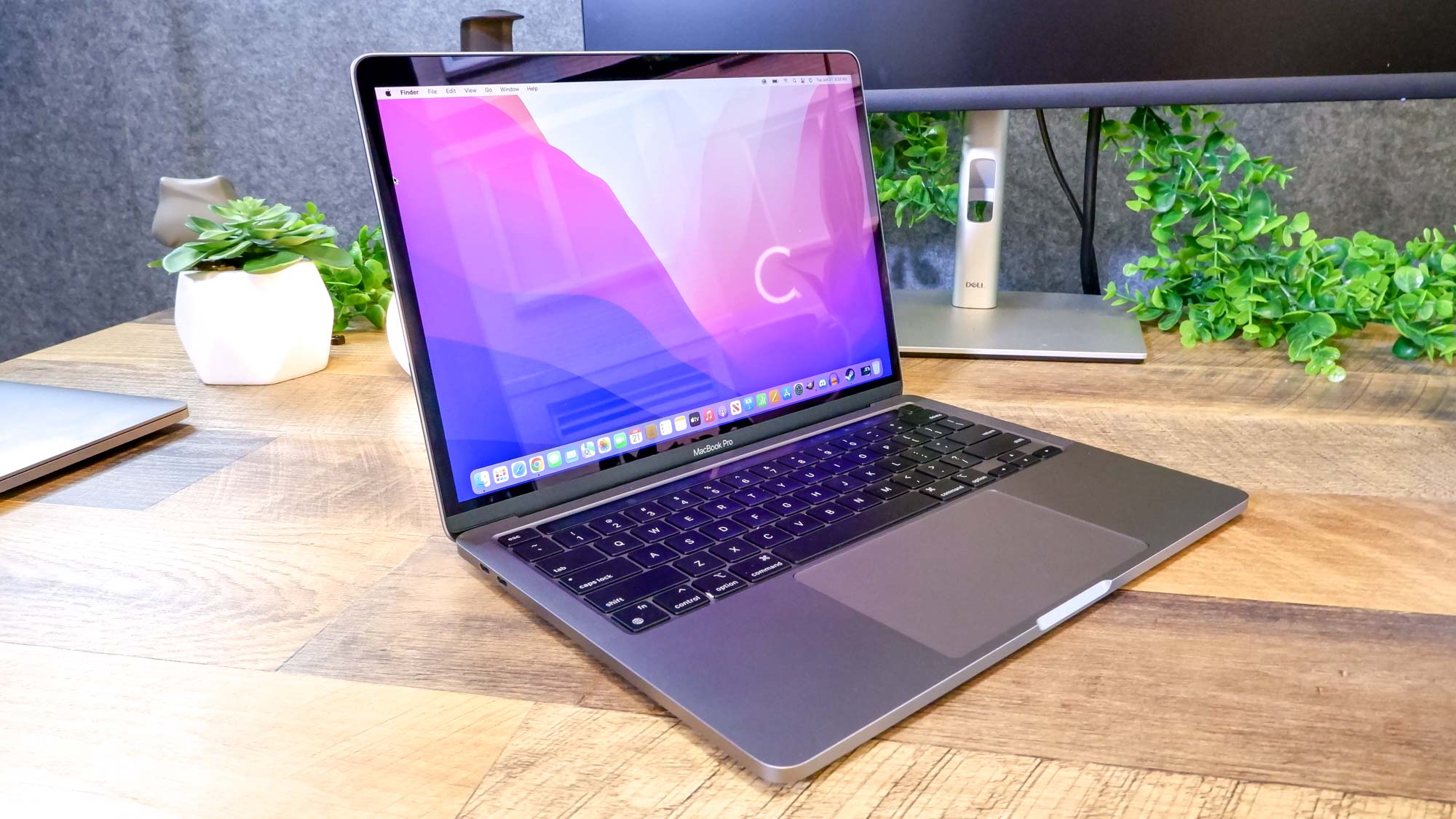Apple M3 chip — why I’m excited for Apple Silicon in 2023
Why the M3 should be noteworthy

Here at Tom’s Guide our expert editors are committed to bringing you the best news, reviews and guides to help you stay informed and ahead of the curve!
You are now subscribed
Your newsletter sign-up was successful
Want to add more newsletters?

Daily (Mon-Sun)
Tom's Guide Daily
Sign up to get the latest updates on all of your favorite content! From cutting-edge tech news and the hottest streaming buzz to unbeatable deals on the best products and in-depth reviews, we’ve got you covered.

Weekly on Thursday
Tom's AI Guide
Be AI savvy with your weekly newsletter summing up all the biggest AI news you need to know. Plus, analysis from our AI editor and tips on how to use the latest AI tools!

Weekly on Friday
Tom's iGuide
Unlock the vast world of Apple news straight to your inbox. With coverage on everything from exciting product launches to essential software updates, this is your go-to source for the latest updates on all the best Apple content.

Weekly on Monday
Tom's Streaming Guide
Our weekly newsletter is expertly crafted to immerse you in the world of streaming. Stay updated on the latest releases and our top recommendations across your favorite streaming platforms.
Join the club
Get full access to premium articles, exclusive features and a growing list of member rewards.
The end of the year is nearly here, and as I look ahead to 2023 I can't help but get excited about what the silicon wizards at Apple might be cooking up behind closed doors.
The company blew away our expectations for MacBook performance in 2020 with the launch of the M1 chip, which helped transform the MacBook Air and MacBook Pro lines into battery-sipping productivity powerhouses. Now, after a 2022 which saw Apple refine and improve upon its M-series chips, it's hard not to get excited about what's coming in 2023.
After all, this was the year Apple proved its remarkable M1 chip wasn't a one-hit wonder by following it up with the even more performant M2. Admittedly, the M2 chips inside the new 13-inch MacBook Pro M2 and MacBook Air M2 laptops aren't quite as powerful as the M1 Pro and M1 Max chips you can get inside the 14-inch and 16-inch MacBook Pro 2021, but what the M2 lacks in graphical muscle it more than makes up for in power efficiency.
And, to be frank, power efficiency is what I'm most excited about.
New heights of performance and power efficiency
I know it's not as sexy as other things Apple’s bespoke Mac chips bring to the table, like unified memory or Apple's Neural Engine (which excels at machine learning tasks and does nice things like enhancing how you look on your webcam), but it's the remarkable battery life of modern MacBooks that makes them easy to recommend.
Apple's notebooks are some of the best laptops for battery life on the market right now, and much of the credit appears to be due to the M-series chips. Hell, the M2 chip helped the MacBook Pro M2 last over 18 hours in our battery test, and that's easily the best battery life I've ever seen out of an ultraportable.

So as I look to the year ahead, I can't stop wondering what slice of Apple Silicon will show up in the Macs (and select iPads) of 2023. That's a little hard for me to admit because for most of my life I've been a die-hard Windows fan. As the computing editor here at Tom's Guide I can't let myself be partial to any brand, but to tell you the truth, when I was off the clock I didn't think much of MacBooks—until they started shipping with Apple's chips inside.
Get instant access to breaking news, the hottest reviews, great deals and helpful tips.
I was astonished by the test results of the first MacBooks packing the M1 chip, and when we benchmarked the 2021 MacBook Pros with their M1 Pro and M1 Max chips I knew I had to reconsider my opinion of Apple's laptops.
Partly that was because Apple did such a great job of redesigning the 2021 MacBook Pros, kitting them out with quality webcams and excellent port arrays that addressed all my issues with their predecessors. But mostly it was because Apple proved it had something significant to add to the laptop chip business. Intel and AMD chips were always fierce competitors for the market, but it felt like after the arrival of the M1 chip Intel really stepped up its game in terms of laptop CPU performance.
Even as a critic of Apple's business practices and products, I've been bowled over by the performance of the M-series chips."
Of course, I can't lay the remarkable leaps forward I've seen in laptop performance over the last few years entirely at Apple's feet. The M-series chips have certainly stoked competition, but I think we've seen Intel's laptop chips improve in large part because the company shifted to a hybrid architecture (meaning the chip has "performance" cores and "efficiency" cores and can dynamically use them as needed, saving power when possible) with the debut of its 12th Gen Alder Lake CPUs early this year.
While Intel previously tried a hybrid approach in 2020 with its Lakefield CPUs, those didn't seem to make much of an impact on the market. Apple's M-series chips are built on a similar hybrid architecture, and I think that helps explain why they deliver such solid performance while maintaining stellar battery life under ideal conditions.
Of course, battery life and performance vary greatly based on how you use your laptop, and our battery test is conducted under ideal conditions in which a laptop is set to endlessly surf the web via Wi-Fi with its screen set to 150 nits' brightness until it conks out.
Did Apple's M-series chips inspire Intel to give the hybrid approach another shot with Raptor Lake? I couldn't say. What I can say is that even as a critic of Apple's business practices and products, I've been bowled over by the performance of the M-series chips. And as I look forward, I'm far more interested in seeing what's next for Apple's laptop chips than I am in finding out how it will redesign the next MacBook Pro (please ditch the Touch Bar for good) or whether it really will deliver the long-rumored OLED MacBooks and iPads in the years ahead.
What to expect
Speaking of rumors and leaks, we've heard plenty this year to suggest that Apple will be bringing some promising new MacBooks to market in 2023 with upgraded M-series chips inside.
For example, a new MacBook Pro with M2 Pro and M2 Max chips is expected to launch next year after reportedly being delayed from a planned debut in the latter half of 2022. Bloomberg reporter and Apple whisperer Mark Gurman has given us good reason to expect a refreshed Mac mini with the latest M2 chips next year too, as well as a potential Mac Pro M2 desktop that would finally replace the aging Mac Pros, which are the final Macs still available with Intel chips inside.
Of course, whatever slices of silicon ship out of Apple next year will face some stiff competition from Intel's 13th Gen Raptor Lake CPUs and AMD's own Ryzen 7000 laptop CPUs, making 2023 an exciting year for chipheads. You can expect to hear more when CES 2023 kicks off the first week of January, and Tom's Guide will be there in person to bring you all the most interesting news as it happens.

Alex Wawro is a lifelong tech and games enthusiast with more than a decade of experience covering both for outlets like Game Developer, Black Hat, and PC World magazine. A lifelong PC builder, he currently serves as a senior editor at Tom's Guide covering all things computing, from laptops and desktops to keyboards and mice.
 Club Benefits
Club Benefits










